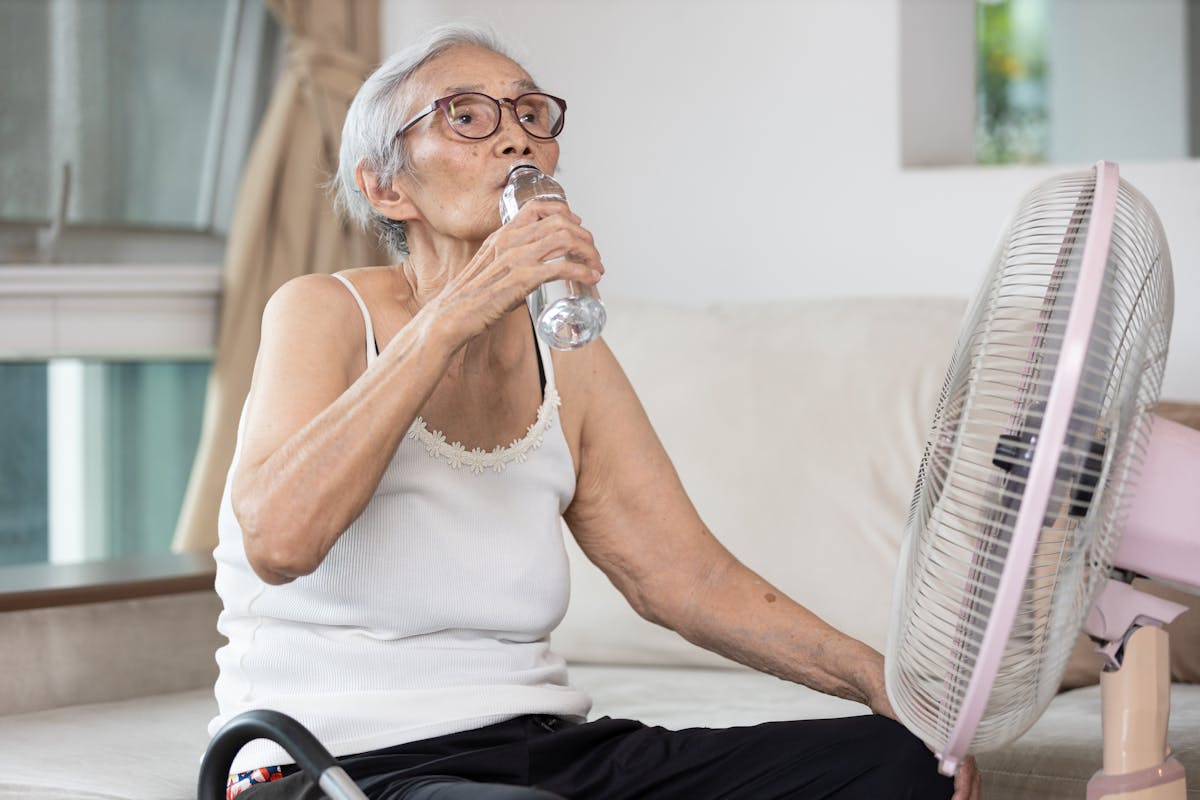Recognizing Dehydration Symptoms in a Senior

After the COVID-19 pandemic and a long winter stuck indoors, many people are looking forward to a season of outdoor living, from gardening and family reunions to outdoor concerts and trips to the beach. As we head into the heart of summer, it’s important to be mindful of the need for good hydration.
For older adults, the summer months present unique health risks, one of which is greater potential for dehydration. While heat and humidity can increase the dehydration risk for people of all ages, older adults are especially vulnerable.
With some seniors, the increased risk is the result of a medical condition that impairs their sense of thirst. Other older adults might have problems adjusting to fluctuations in temperature. Their body’s ability to sweat diminishes, so they can’t cool down as efficiently. Both can lead to serious health complications, like dehydration and heat stroke.
For adult children, it’s essential to know how to recognize the symptoms of dehydration and to learn how much liquid a senior loved one should be consuming each day.
Warning Signs of Dehydration
While many of us know that dehydration is a serious health condition, few people understand just what it is and what the warning signs are.
In short, dehydration is the result of the body using more fluids than it takes in. When you don’t take in enough fluids, normal bodily functions can be compromised. The result can be problems ranging from headaches to kidney failure and even death.
It’s important to learn to recognize the warning signs that indicate the early stages of dehydration. Here are a few of the most common ones to be on the lookout for:
- Fatigue
- Sleepiness
- Confusion
- Dizziness
- Dry mouth
- Muscle weakness
- Headache
As dehydration progresses, it can cause vomiting, diarrhea, and seizures.
If a parent or senior you are the caregiver for is exhibiting these symptoms, seek treatment at an urgent care center or a hospital emergency room without delay. They may need IV therapy to restore fluid levels.
Fluid Intake to Prevent Summer Dehydration
If you are wondering how much fluid you or a senior loved one needs in a day, it’s a question that isn’t easy to answer. It can fluctuate depending on the heat and humidity, as well as your personal health and activity level.
The Centers for Disease Control generally recommends adults consume 48–64 ounces of fluid a day. If you will be spending time outdoors when it’s hot or humid or if you are indoors in a space that isn’t air conditioned, you’ll likely need to significantly increase that amount.
It’s important to know that fluid consumption extends beyond just water, and some liquids actually contribute to dehydration. Fruit and vegetable juices, soup, water, and milk, for example, promote better hydration. But sodas and coffee shouldn’t be counted in your daily fluid consumption total. If they contain caffeine, a diuretic, they can actually increase the risk for dehydration.
To learn more, visit Summer Dehydration and Seniors: What Adult Children Should Know.
Keep a Senior Loved One Safe With a Medical Alert System
Being able to call for help when you’re home alone, whether it’s for a medical concern like dehydration or another type of emergency, is vital. A mobile monitoring unit makes it easy for a senior to quickly speak with an emergency operator 24/7. Call 1-844-203-5617 for more details!